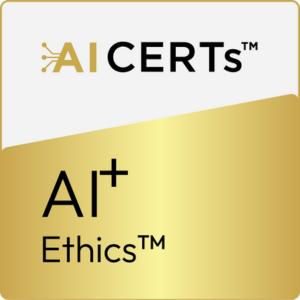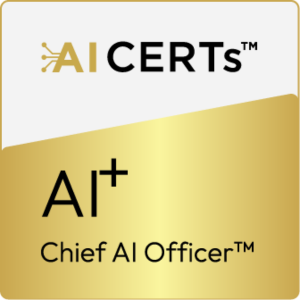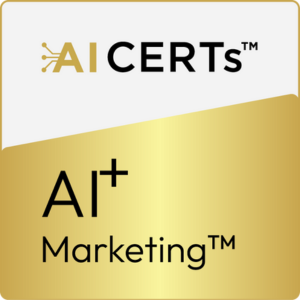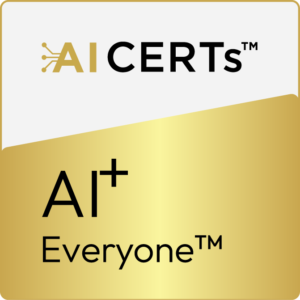Prerequisites
- Foundational knowledge of Artificial Intelligence and Machine Learning concepts.
- Awareness of social, cultural, and political impacts of AI adoption.
- Understanding of professional ethics, including honesty, integrity, and accountability.
- Experience with real-world AI case studies that highlight ethical dilemmas.
- Ability to assess and make informed, ethical decisions in deploying AI systems.
- Familiarity with relevant laws, industry regulations, and governance frameworks for AI technologies.
Exam Details
- Modules (9)
- Examination (1)
- 50 MCQs, 90 Minutes
- Passing Score (70% (35/50) )
Exam Blueprint
| Modules | Percentage |
|---|---|
| Overview of AI Ethics & Societal Impact | 10 |
| Bias and Fairness in AI | 5 |
| Transparency and Explainable AI | 10 |
| Privacy and Security Issues in AI | 5 |
| Accountability and Responsibility | 10 |
| Legal and Regulatory Issues | 15 |
| Ethical Decision-Making Frameworks | 15 |
| AI Governance & Best Practices | 15 |
| Global AI Ethics Standards | 15 |
What you will get
High-Quality Videos, E-book (PDF & Audio), and Podcasts
AI Mentor for Personalized Guidance
Quizzes, Assessments, and Course Resources
Online Proctored Exam with One Free Retake
Comprehensive Exam Study Guide
Why AI Ethics™? 10X AI Governance & Compliance Impact
- Deep Ethical Insight
Understand the societal and ethical implications of AI to support responsible decision-making. - Bias and Fairness
Learn to detect and reduce bias in AI systems while promoting transparency and equity. - Privacy and Security
Explore methods to protect data and ensure the security of AI systems. - Global Compliance
Gain knowledge of international AI laws and regulations to align with ethical and legal standards.
Who Should Enroll
- Ethics Professionals
Advance your understanding of AI ethics to support responsible and transparent technology use. - AI and Data Enthusiasts
Apply ethical frameworks to real-world AI decision-making and development. - Compliance Officers
Ensure AI solutions align with regulatory standards and reduce organizational risk. - Technology Leaders
Lead responsible AI adoption and build trust through ethical innovation. - Students and New Graduates
Develop future-ready skills in AI ethics to stand out in an evolving tech landscape.
.
- AI4People (Atomium - European Institute for Science, Media, and Democracy)
- IBM - AI Fairness 360
- IBM - AI Explainability 360
- European Commission High-Level Expert Group on AI
Prerequisites
Basic understanding of AI and machine learning concepts
Awareness of AI’s social, cultural, and political implications
Familiarity with professional ethics and responsible decision-making
Exposure to real-world ethical dilemmas in AI through case studies
Ability to critically assess AI systems from an ethical perspective
Understanding of laws, regulations, and industry standards related to AI
Exam Blueprint:
- Overview of AI Ethics & Societal Impact – 10%
- Bias and Fairness in AI – 5%
- Transparency and Explainable AI – 10%
- Privacy and Security Issues in AI – 5%
- Accountability and Responsibility – 10%
- Legal and Regulatory Issues – 15%
- Ethical Decision-Making Frameworks – 15%
- AI Governance & Best Practices – 15%
- Global AI Ethics Standards – 15%
Frequently Asked Questions
Why is there a growing demand for ethics professionals in AI
As AI technologies become more integrated into decision-making, organizations need professionals who can ensure fairness, transparency, and responsible use to mitigate ethical and legal risks.
Who should take the AI+ Ethics Certification
This certification is ideal for ethics professionals, compliance officers, technology leaders, AI practitioners, and anyone seeking to integrate ethical practices into AI development and deployment.
How will this certification benefit my career
You will gain in-demand skills to assess AI systems ethically, guide responsible implementation, and position yourself as a trusted expert in a growing field.
How does the AI+ Ethics Certification help in career advancement
It opens doors to roles focused on AI governance, risk management, compliance, and innovation leadership, making you a valuable asset in AI-driven organizations.
How can organizations benefit from having employees with AI+ Ethics Certification
Certified professionals help build trust, ensure regulatory compliance, and lead ethical AI strategies that protect the organization and its stakeholders.
How long does the certification process take
The course is self-paced and typically takes 6 to 8 hours to complete, including interactive modules, case studies, and the final assessment.
